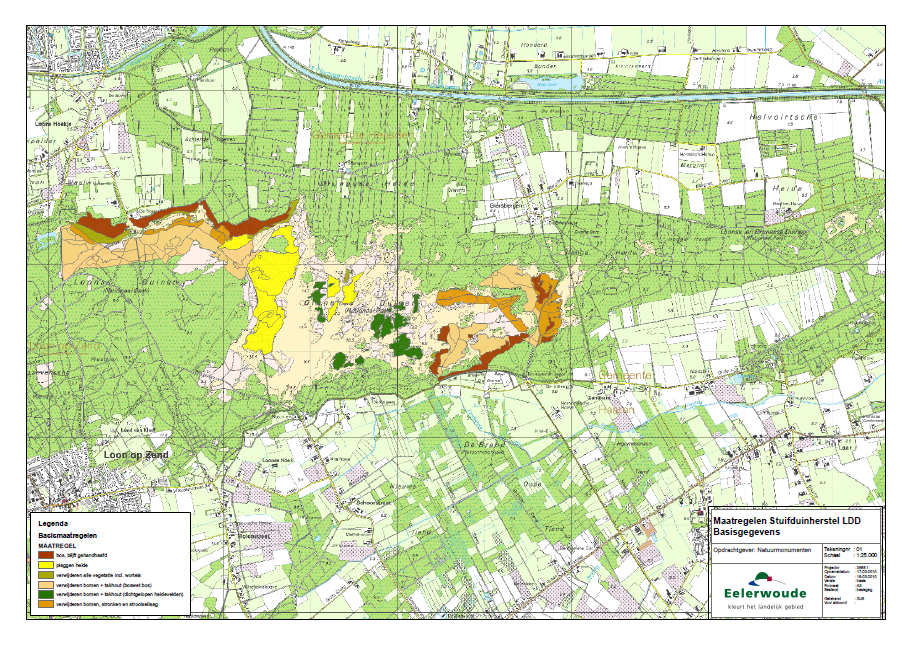The Dunen
National Park is located in a national park in the Northern Brabant province in
the Netherlands is an area that is going to be the focal point of the upcoming
weeks. The area rests on 4000 hectares and was deemed an official national park
in 2002. The vegetation that makes up this area consists mainly of pine
forestry and dry shrubbery, the area also consists of dry sand dunes and a vast
stream valley zone of the zandleij. Seeing as this area is a national park,
this area is protected by European Union regulations called the Natura 2000
with the goal of securing this vulnerable area. The map to the right (Figure
1 Area of study)
depicts the area that will be studied in this project.
Dunes are typically very sandy with
low levels of nutrients and vegetation in them so the little that is there
requires a great amount of protection. The different types of vegetation that
are present in these areas are classed and registered under “goal vegetation
types” and standards are set by the EU in regard to the quality of these.
NatuurMonumenten
(NM) are an organisation who specialize in managing this area. After some
examining over an extended period of time, they noticed a decline in the
quality of vegetation. This diminish could be a result of foreign contaminants
such as nitrogen deposition.

